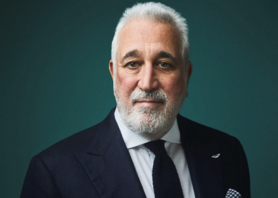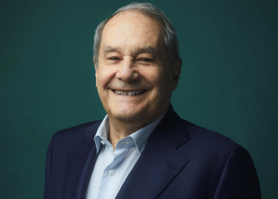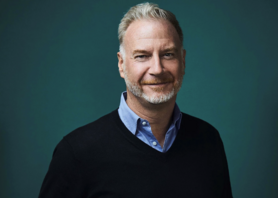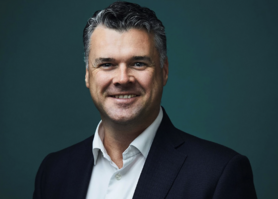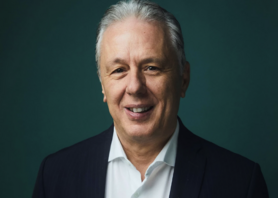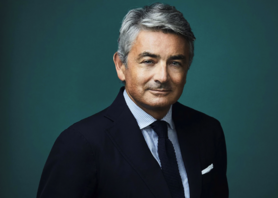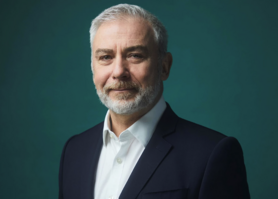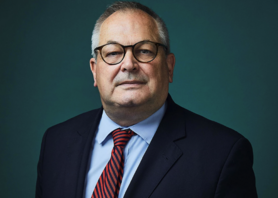Aston Martin Lagonda Global Holdings plc: Difference between revisions
No edit summary |
DaiyangChen (talk | contribs) |
||
| Line 8: | Line 8: | ||
== Competition == | == Competition == | ||
There are several other companies that compete with Aston Martin in the offering of luxury sports cars worldwide. Some notable examples include Ferrari, Rolls-Royce, Lamborghini, Bentley and Porsche. Although Aston Martin is unique in several ways, the other companies are much more diversified in the products and services they offer and will therefore have several streams of income which may be more reliable in the long run. | |||
Ferrari, renowned for its sports cars, boasts a broader range of products and services. In addition to their automotive division, Ferrari operates museums in Modena and Maranello, captivating enthusiasts with a rich display of automotive history. Furthermore, their restaurant in Maranello offers a unique dining experience. Expanding beyond the automotive sector, Ferrari has ventured into the realm of entertainment by establishing theme parks in Abu Dhabi and Spain, attracting visitors seeking an immersive Ferrari-themed adventure. Additionally, Ferrari extends its brand reach through apparel and accessories, allowing enthusiasts to connect with the brand beyond the realm of automotive performance. Notably, they also provide financial services to clients, further diversifying their revenue streams. <ref>https://uk.finance.yahoo.com/quote/RACE/profile?p=RACE</ref> | |||
Rolls-Royce, while recognized for its luxurious vehicles, also engages in engineering and selling aero engines for commercial and military aircraft. This diversification into the aerospace industry demonstrates their commitment to cutting-edge engineering and technological innovation. By capitalizing on their expertise beyond the automotive sector, Rolls-Royce taps into additional revenue streams and widens its scope of influence. <ref>https://uk.finance.yahoo.com/quote/RR.L/profile?p=RR.L</ref> | |||
Within the Volkswagen Group, Lamborghini, Bentley, and Porsche operate as luxury sports car manufacturers. However, the group's portfolio encompasses a wider array of brands. Seat and Škoda, for instance, cater to the mass market with their offerings of regular passenger cars, showcasing the group's ability to target diverse customer segments. Moreover, the Volkswagen Group provides financial services for customer financing, supplementing their revenue generation beyond the sale of vehicles. <ref>https://uk.finance.yahoo.com/quote/VOW3.DE/profile?p=VOW3.DE</ref> | |||
By acknowledging the various revenue streams of these competitors, it becomes apparent that Aston Martin's specialization in luxury sports cars may offer a focused approach to the market. While the other companies exhibit broader diversification, the distinctive qualities, exclusivity, and craftsmanship associated with Aston Martin contribute to its unique appeal. Aston Martin's commitment to refining the art of luxury sports cars positions it as a distinctive brand in the automotive world. | |||
== Team == | == Team == | ||
Revision as of 01:33, 6 July 2023
Summary
Aston Martin Lagonda Global Holdings plc designs, develops, manufactures, markets, and sells luxury sports cars under the Aston Martin and Lagonda brand names worldwide. It also engages in the sale of parts; sale of vehicles; servicing of vehicles; and brand and motorsport activities. The company sells its vehicles through a network of dealers. It has strategic technology agreement with Mercedes-Benz AG. Aston Martin Lagonda Global Holdings plc was incorporated in 2018 and is headquartered in Gaydon, the United Kingdom.
Operations
Market
Competition
There are several other companies that compete with Aston Martin in the offering of luxury sports cars worldwide. Some notable examples include Ferrari, Rolls-Royce, Lamborghini, Bentley and Porsche. Although Aston Martin is unique in several ways, the other companies are much more diversified in the products and services they offer and will therefore have several streams of income which may be more reliable in the long run.
Ferrari, renowned for its sports cars, boasts a broader range of products and services. In addition to their automotive division, Ferrari operates museums in Modena and Maranello, captivating enthusiasts with a rich display of automotive history. Furthermore, their restaurant in Maranello offers a unique dining experience. Expanding beyond the automotive sector, Ferrari has ventured into the realm of entertainment by establishing theme parks in Abu Dhabi and Spain, attracting visitors seeking an immersive Ferrari-themed adventure. Additionally, Ferrari extends its brand reach through apparel and accessories, allowing enthusiasts to connect with the brand beyond the realm of automotive performance. Notably, they also provide financial services to clients, further diversifying their revenue streams. [1]
Rolls-Royce, while recognized for its luxurious vehicles, also engages in engineering and selling aero engines for commercial and military aircraft. This diversification into the aerospace industry demonstrates their commitment to cutting-edge engineering and technological innovation. By capitalizing on their expertise beyond the automotive sector, Rolls-Royce taps into additional revenue streams and widens its scope of influence. [2]
Within the Volkswagen Group, Lamborghini, Bentley, and Porsche operate as luxury sports car manufacturers. However, the group's portfolio encompasses a wider array of brands. Seat and Škoda, for instance, cater to the mass market with their offerings of regular passenger cars, showcasing the group's ability to target diverse customer segments. Moreover, the Volkswagen Group provides financial services for customer financing, supplementing their revenue generation beyond the sale of vehicles. [3]
By acknowledging the various revenue streams of these competitors, it becomes apparent that Aston Martin's specialization in luxury sports cars may offer a focused approach to the market. While the other companies exhibit broader diversification, the distinctive qualities, exclusivity, and craftsmanship associated with Aston Martin contribute to its unique appeal. Aston Martin's commitment to refining the art of luxury sports cars positions it as a distinctive brand in the automotive world.
Team
Leadership
Executive Chairman - Lawrence Stroll
Lawrence Stroll became Executive Chairman of Aston Martin Lagonda Global Holdings plc in April 2020 after leading the Yew Tree Consortium investment in the Company.
Mr. Stroll began his career over 30 years ago when his family acquired the Pierre Cardin children’s wear licence for Canada. Shortly thereafter, he acquired the licence for Polo Ralph Lauren children’s wear in Canada and launched Polo Ralph Lauren men’s, women’s and children’s apparel throughout Europe under the company Poloco S.A. In 1989, Mr. Stroll and Mr. Chou formed Sportswear Holdings Limited to acquire Tommy Hilfiger Corporation, where Mr. Stroll served on the board of directors from 1992 to 2002 and was the company’s Co-Chairman from 1998 to 2002. Sportswear Holdings Limited also acquired Pepe Jeans London Corporation in 1991, of which Mr. Stroll was Group Chief Executive Officer from 1993 through 1998. Mr. Stroll also served as the Co-Chairman of Hackett Ltd., a major men’s clothing retailer and a subsidiary of Pepe, from 2007 until 2012. In 2003, Sportswear Holdings Limited acquired a majority interest in Michael Kors Holdings Limited, where Mr. Stroll served as Co-Chairman from 2003 to 2011, when Mr. Stroll and Mr. Chou led Michael Kors’ successful IPO, and continued as a director until 2014.
Mr. Stroll has been an active investor in the automotive and motorsport sectors, leading a consortium to acquire the BWT Racing Point F1™ team in 2018, which has been rebranded as the Aston Martin Cognizant F1™ team from 2021.
Chief Executive Officer - Amedeo Felisa
Mr Amedeo Felisa joined Aston Martin Lagonda in May 2022 as Chief Executive Officer, having previously served as a non-Executive Director of AML, Felisa is appointed an Executive Director of Aston Martin Lagonda Global Holdings plc.
Felisa has spent his entire career in automotive and engineering with over 26 years in leadership roles at Ferrari, including eight as CEO, guiding the Italian-based global luxury automotive OEM through its turnaround and growth phase as the engineering and product-development force behind every new model.
Felisa holds a degree in mechanical engineering from the Milan Politecnico University.
Executive Vice President and Chief Creative Officer - Marek Reichman
Mr. Reichman joined Aston Martin Lagonda in 2005 and is the Executive Vice President and Chief Creative Officer responsible for design developments.
During his professional career he has held design roles at Ford, BMW, Land Rover, Rover Cars and Nissan. Prior to joining Aston Martin Lagonda, he was Design Director at Ford North America.
Mr. Reichman holds a BA in Industrial Design from Teesside University and an MDes in Vehicle Design from the Royal College of Art, London. In 2011, Mr. Reichman received an honorary doctorate from Teesside University.
Chief Financial Officer - Doug Lafferty
Mr Doug Lafferty is Chief Financial Officer at Aston Martin Lagonda, having joined the Company in May 2022.
Prior to joining Aston Martin, Lafferty was the Chief Financial Officer of FTSE 250-listed fuel retailer Vivo Energy plc. He previously spent three years as Chief Financial Officer for Williams Grand Prix Holdings plc and 16 years in a wide range of senior finance and leadership roles at British American Tobacco.
Lafferty is a member of CIMA and holds a BSc Hons in Management Studies from Royal Holloway, University of London.
Group Chief Technical Officer - Roberto Fedeli
Mr Roberto Fedeli is Group Chief Technical Officer at Aston Martin Lagonda, having joined the Company in June 2022.
Fedeli is a proven leader in the luxury high-performance sports cars sector. He is considered the creator of Ferrari LaFerrari, the Italian company's first hybrid supercar as well as some of its most iconic models during his 26-year tenure. Fedeli brings his extensive knowledge, passion for innovation and his most recent experiences in the implementation of electrification technologies during his time at BMW.
Fedeli holds a Master’s degree in aerospace engineering from the University of Pisa.
Global Chief Brand and Commercial Officer - Marco Mattiacci
Mr Marco Mattiacci joined Aston Martin Lagonda in February 2022 as Global Chief Brand and Commercial Officer, having previously worked as an advisor to the Company.
Mattiacci spent over a decade in senior leadership positions at Ferrari – including spells as President and CEO of Ferrari North America, President and CEO of Ferrari Asia Pacific, and Managing Director and Team Principal of the Scuderia Ferrari Formula One™ racing team.
Prior to working with Aston Martin, Mattiacci spent five years as a senior advisor to management consulting firm McKinsey & Company and private equity firms, providing counsel on automotive and mobility topics. His experience extends to electric mobility, having previously worked and advised EV start-up companies.
The luxury automotive leader – who in 2012 was named winner of the prestigious Automotive Executive of the Year Award in the United States - studied economics at the University La Sapienza. He later attended Columbia University Business School before being accepted into the INSEAD international executive program in Singapore.
Executive Consultant to the CEO - Michael Straughan
In 2023 Michael Straughan began a new position as Executive Consultant to the CEO, having originally joined Aston Martin in 2020 as Chief Operating Officer.
Michael has spent more than 30 years within the automotive and luxury industries, holding senior positions in Volvo Cars, LDV, Jaguar Land Rover, before joining the board of Bentley Motors and then subsequently becoming COO of luxury yacht manufacturer Sunseeker in 2017.
Michael has a proven track record of delivery, turnaround and restructuring, creating shareholder value.
Vice President and General Counsel - Michael Marecki
Mr. Marecki joined Aston Martin Lagonda in July 2007 and is Vice President and General Counsel. Prior to his current position, Mr. Marecki worked from 1988 until June 2007 for Ford Motor Company, latterly as the Assistant General Counsel, Environment and Safety. Mr. Marecki holds a Juris Doctor from Georgetown University Law Center and a Bachelor of Arts from Fordham University.
Chief People Officer - Simon Smith
Mr Simon Smith joined Aston Martin Lagonda in April 2022 as Chief People Officer.
Smith has extensive HR experience across the engineering and manufacturing sector, starting his career with Peugeot and spending a significant part of his career at both Alstom and Rolls Royce. More recently Smith has held transformation and strategy leading HR roles at Johnson Matthey and Legal and General Modular Homes.
Smith is a fellow of the CIPD, is a qualified Executive Coach and holds a BA Hons in Politics and International Relations from Lancaster University.
Chief Industrial Officer - Vincenzo Regazzoni
Vincenzo Regazzoni is Chief Industrial Officer of Aston Martin and was appointed in 2023 to oversee all manufacturing operations.
Working as an advisor to Aston Martin prior to his appointment, Regazzoni has more than two decades of experience in the low volume, ultra-luxury automotive segment, including his most recent position as Chief Manufacturing Officer of Ferrari.
Chief Procurement Officer - Giorgio Lasagni
Giorgio Lasagni is Chief Procurement Officer of Aston Martin, joining the business in 2023.
With a focus on strengthening strategic relationships, Lasagni leads Aston Martin’s procurement function, supply chain governance and strategy.
Having established best in class purchasing and supplier development functions in the high-performance automotive sector and other industries, Lasagni’s career includes roles as Purchasing and Supplier Development Director at Ferrari and Engine Manufacturing Director for Ferrari and Maserati.
Financials
Risks
Investing in any company, including Aston Martin, carries with it certain risks. Some general risk factors that one might consider when investing in Aston Martin or similar companies are as follows:
- Market Risk: Like any other business, Aston Martin is subject to changes in the market. These changes can come from fluctuations in the global economy, changes in consumer preference, or shifts in automotive industry trends.
- Competition: The automotive industry is highly competitive. There's an ongoing race to innovate, especially with the advent of electric and autonomous vehicles. If competitors can deliver more attractive products faster or more economically, Aston Martin's market share and profitability could be impacted.
- Technological Change: The auto industry is seeing massive changes with the development of electric vehicles, autonomous driving, and shared mobility. If Aston Martin is unable to keep pace with these trends, it could adversely affect the company's position in the market.
- Regulatory Risk: Governments worldwide have been increasing regulations regarding emissions and pushing for a move towards electric vehicles. If Aston Martin is unable to adapt to these regulatory changes, it could impact their ability to sell vehicles in certain markets.
- Financial Risk: You should also consider the company's financial health. Aston Martin has historically had a somewhat unstable financial situation. If the company is unable to manage its debt or achieve profitability, it could pose a significant risk to investors.
- Brexit and Global Trade Policies: Since Aston Martin is a UK-based company, changes in trade policies, tariffs, or the impact of Brexit could affect the company's operations, particularly as they rely heavily on export markets.
- Brand and Reputation: Aston Martin's appeal is closely tied to its brand image. Any reputational damage, such as that from a recall or high-profile negative event, could significantly impact the brand and subsequently, the company's performance.
- Supply Chain Risks: Disruptions to the supply chain can impact production. The recent COVID-19 pandemic, for example, has shown how disruptions in one part of the world can significantly impact operations globally.
